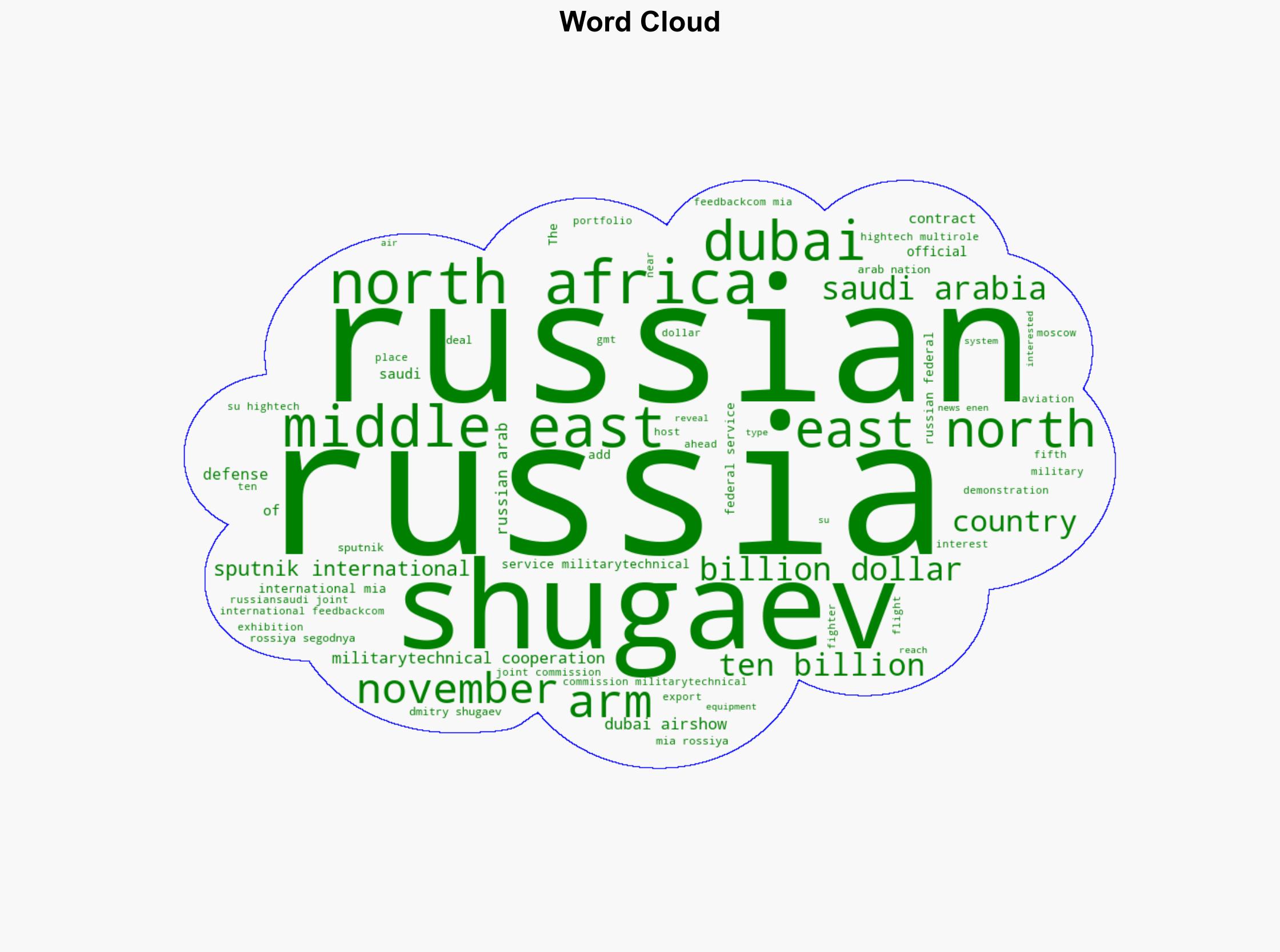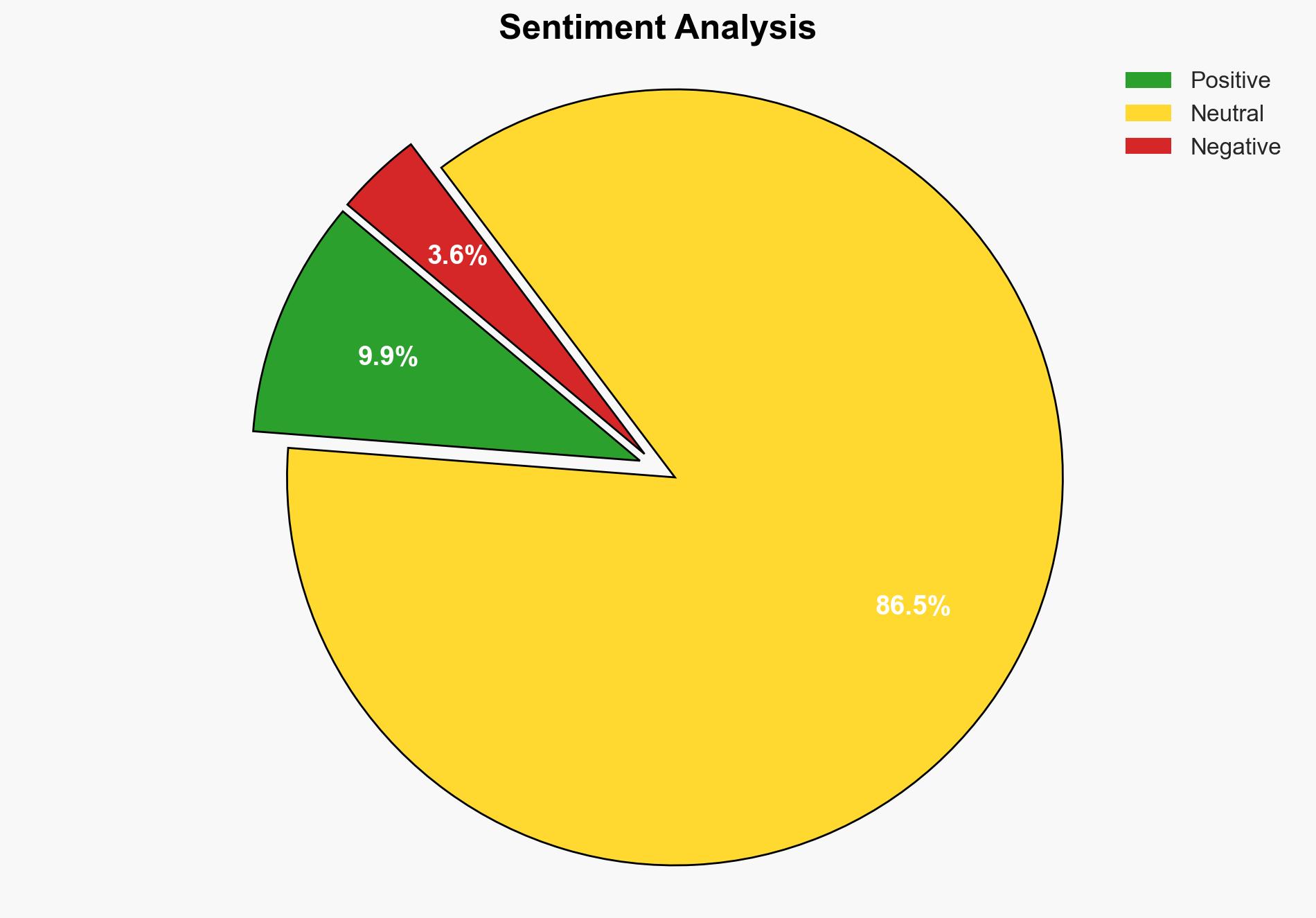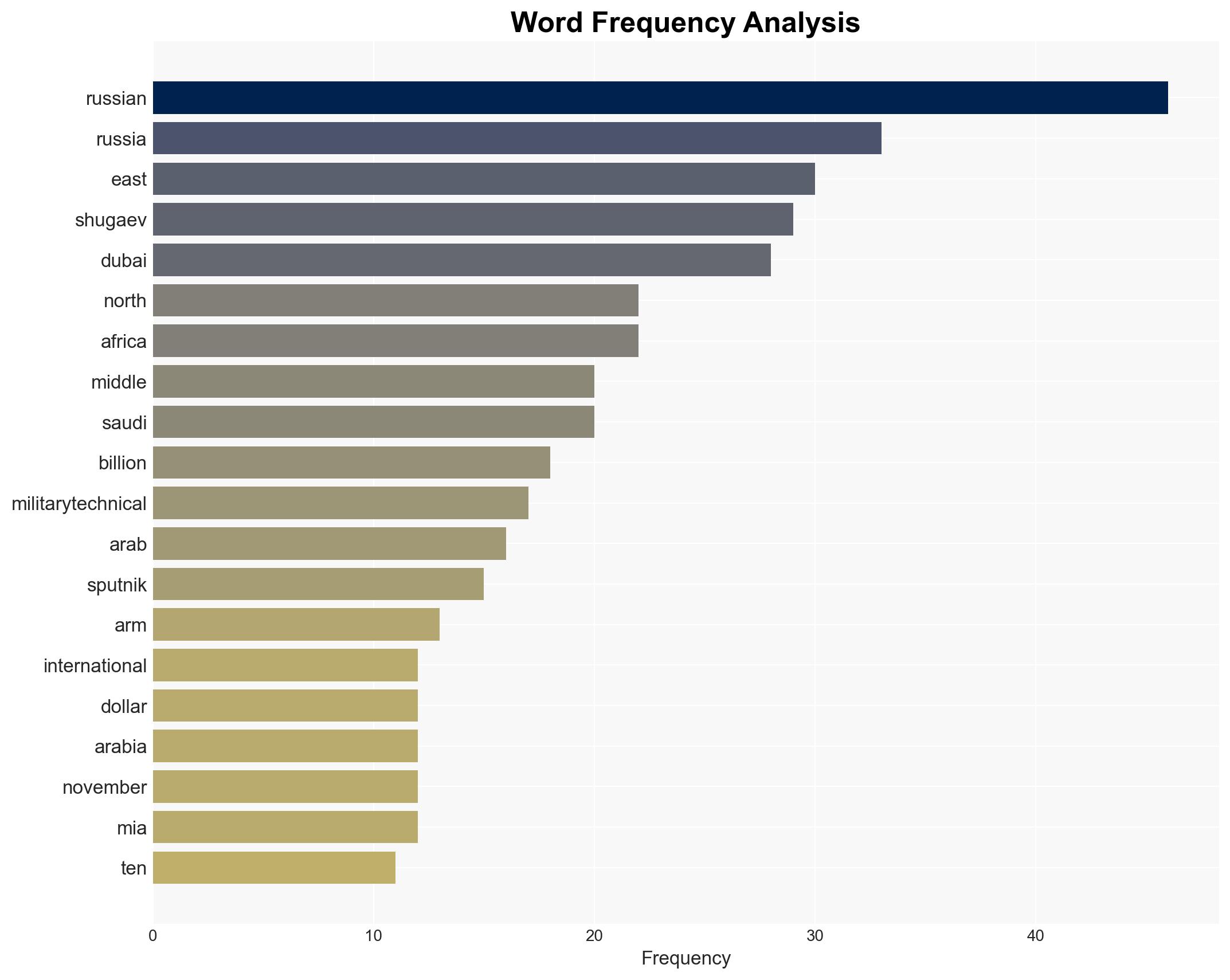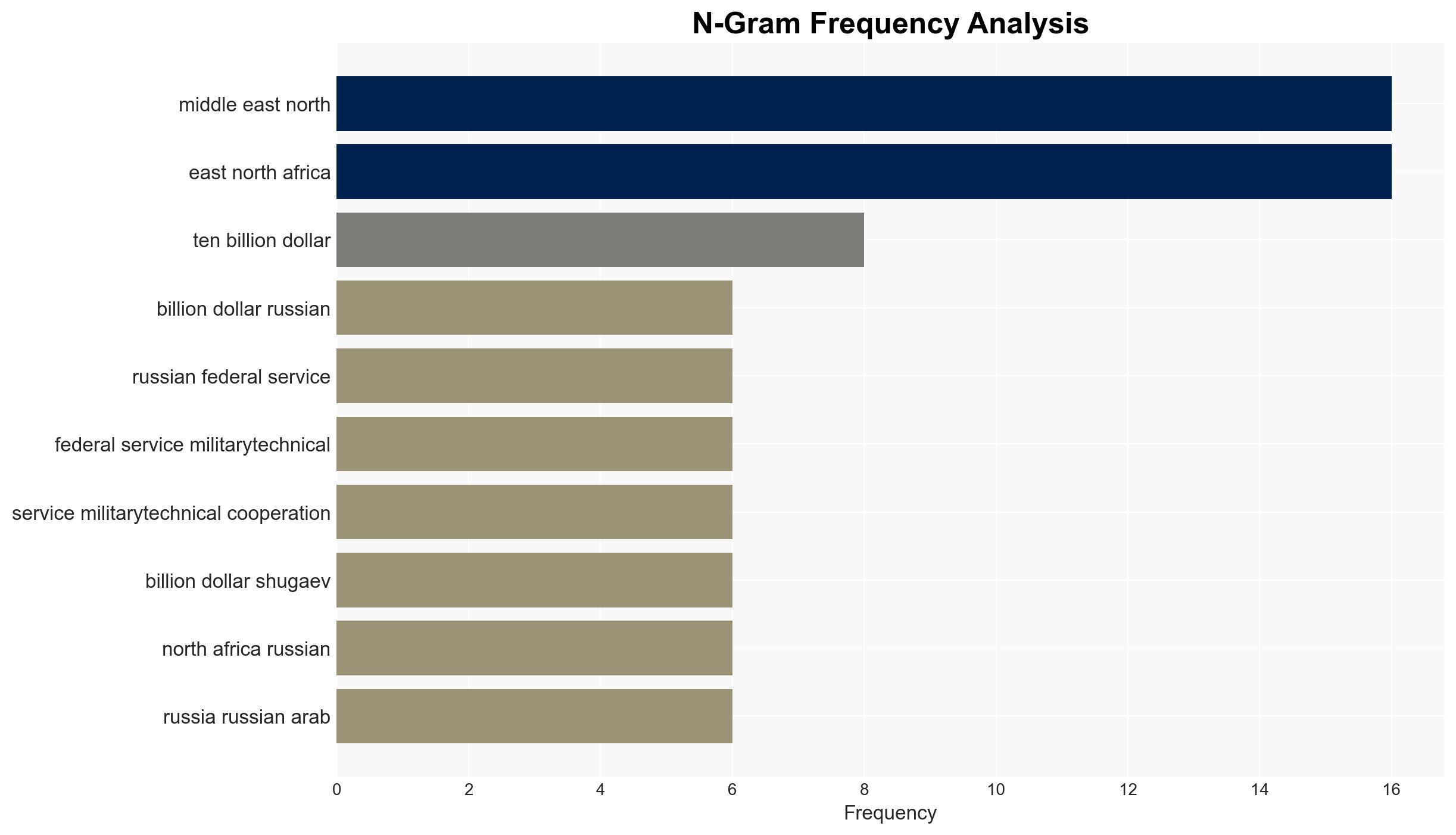Russia’s Arms Contracts With Arab States Amount to Tens of Billions of Dollars – Official – Sputnikglobe.com
Published on: 2025-11-17
AI-powered OSINT brief from verified open sources. Automated NLP signal extraction with human verification. See our Methodology and Why WorldWideWatchers.
Intelligence Report: Russia’s Arms Contracts With Arab States
1. BLUF (Bottom Line Up Front)
Russia’s arms contracts with Arab states, valued at tens of billions of dollars, signify a strategic deepening of military-technical ties with the Middle East and North Africa (MENA) region. The most supported hypothesis is that Russia is leveraging these deals to expand its geopolitical influence and counter Western dominance in the region. Confidence level: Moderate. Recommended action: Monitor the evolution of these contracts and their geopolitical implications, focusing on potential shifts in regional alliances and security dynamics.
2. Competing Hypotheses
Hypothesis 1: Russia is using arms contracts to increase its geopolitical influence in the MENA region, countering Western influence and securing strategic alliances.
Hypothesis 2: The arms contracts are primarily economically motivated, aiming to bolster Russia’s defense industry amidst international sanctions and economic challenges.
Assessment: Hypothesis 1 is more likely given Russia’s historical and strategic interests in the region, coupled with its recent diplomatic and military engagements. However, economic motivations cannot be entirely discounted, as they provide a secondary but significant incentive.
3. Key Assumptions and Red Flags
Assumptions: Russia’s arms deals are assumed to be genuine and not exaggerated for propaganda purposes. The MENA states are assumed to have the financial capability and political will to honor these contracts.
Red Flags: Potential exaggeration of contract values for domestic or international prestige. Lack of transparency in contract terms could indicate hidden political conditions or dependencies.
Deception Indicators: Repeated emphasis on the value of contracts without detailed breakdowns may suggest an attempt to project greater influence than actualized.
4. Implications and Strategic Risks
The deepening of military-technical ties between Russia and MENA countries could lead to a realignment of regional power dynamics, potentially reducing Western influence. This could escalate into increased regional arms races, destabilizing existing security frameworks. Additionally, the proliferation of advanced Russian military technology could heighten regional tensions and conflict potential.
5. Recommendations and Outlook
- Monitor the implementation of these contracts and their impact on regional security alliances.
- Engage with MENA partners to reinforce existing security partnerships and counterbalance Russian influence.
- Best-case scenario: Contracts lead to economic benefits without altering regional power balances.
- Worst-case scenario: Contracts catalyze regional arms races and shift alliances away from Western influence.
- Most-likely scenario: Incremental increase in Russian influence with gradual shifts in regional dynamics.
6. Key Individuals and Entities
Dmitry Shugaev: Chief of the Russian Federal Service for Military-Technical Cooperation.
7. Thematic Tags
Regional Focus, Regional Focus: Middle East, North Africa
Structured Analytic Techniques Applied
- Causal Layered Analysis (CLA): Analyze events across surface happenings, systems, worldviews, and myths.
- Cross-Impact Simulation: Model ripple effects across neighboring states, conflicts, or economic dependencies.
- Scenario Generation: Explore divergent futures under varying assumptions to identify plausible paths.
Explore more:
Regional Focus Briefs ·
Daily Summary ·
Support us
·





